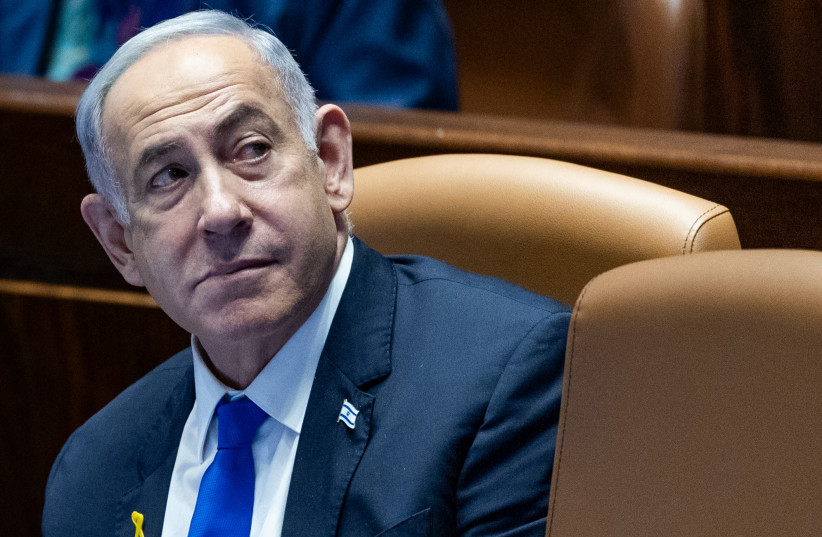Netanyahu: Hostage deal doesn’t demand Israeli pledge to end Gaza war now
The hostage deal on the table can move forward without an Israeli pledge to end the Gaza war now, Prime Minister Benjamin Netanyahu said as he awaited Hamas’s response to the latest proposal to free the remaining 124 captives.
“We are working in countless ways to return our hostages,” Netanyahu said, adding, “I think about them constantly, about their families and their suffering.”
He issued a public defense of the deal unveiled Friday night by US President Joe Biden in Washington as his far-right coalition partners Otzma Yehudit and Religious Zionist Party threatened to bolt the government should it approve any agreement that demanded a premature end to the war.
Netanyahu pushed back in public and in private, stressing that Israel has gone a long way to return the hostages, “while adhering to the objectives of the war, first and foremost the elimination of Hamas.”
Israel is “insistent that we will achieve both” the return of the hostages and the destruction of Hamas, Netanyahu said.

“This is part of the outline” Biden presented and “not something that I have just added because of coalition pressure. This is something that we agreed on in the War Cabinet unanimously,” Netanyahu said.
He issued similar statements in a closed-door session of the Knesset Foreign Affairs and Defense Committee, where according to a source, he said that “Israel does not commit to ending the war before all of its goals are achieved.”
He reiterated Israel’s three goals: to destroy Hamas, to free the hostages, and to ensure that Gaza would not pose a threat to Israel.
The three-phased plan
Biden on Friday outlined a three-phase plan, that would see the release of all the live hostages in the first two phases. The first phase, which would last for six weeks, would include a temporary halt to the fighting and the withdrawal of IDF soldiers from populated areas of the enclave. Women, the elderly, ill, and infirmed — would be freed in this phase, in exchange for an unspecified number of Palestinian security prisoners, while the remainder of the captives would be released in the second phase.
An Israeli official explained that on the 16th day of phase one, negotiations will begin on phase two of the deal.
“Indirect negotiations will begin between the parties in order to formulate an agreement on the terms for the implementation of phase two of this agreement no later than the 16th day,” the official said.
Biden on Friday night explained that phase two did involve a permanent ceasefire but that talks were needed for the start of that phase.
“There are a number of details to negotiate to move from phase one to phase two. Israel will want to make sure its interests are protected,” Biden said in his Friday speech, but he did not outline what those were.
Israel, according to the official, will insist that the implementation of phase two will begin only after an agreement is reached on the terms of the cease-fire.
Since talks for phase two could continue past the six-week timeline, the official explained that according to a clause the War Cabinet added to the proposal, Israel retained the right to resume its military campaign against Hamas, if it gets the impression that “negotiations are futile and serve only to bide time.”





Comments are closed.